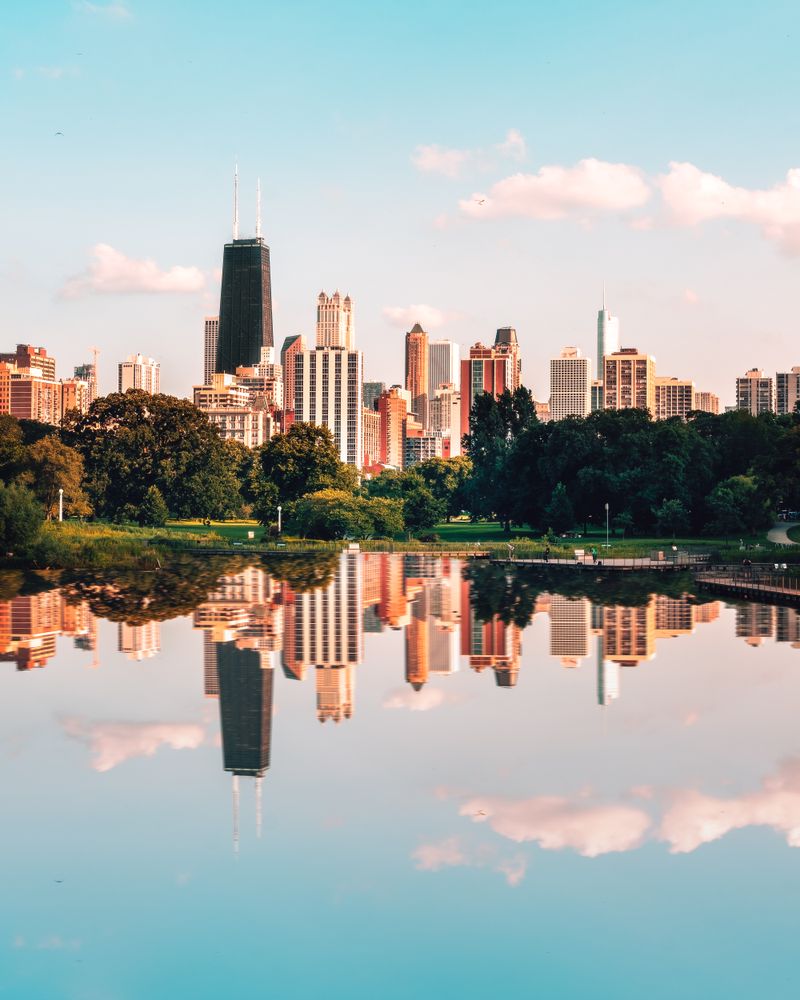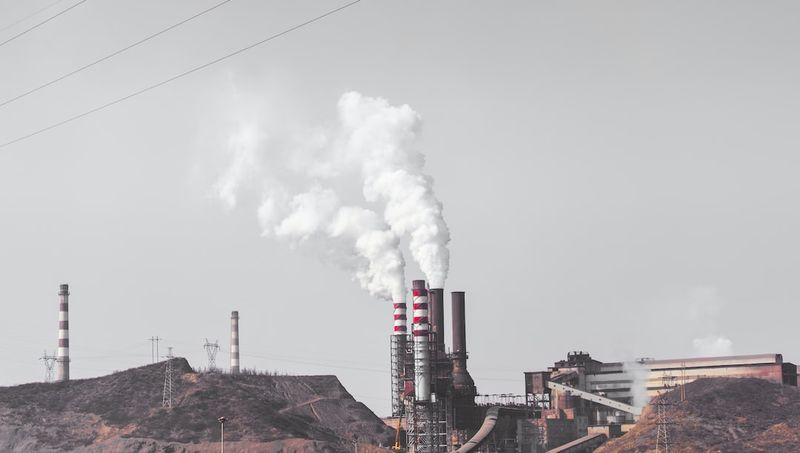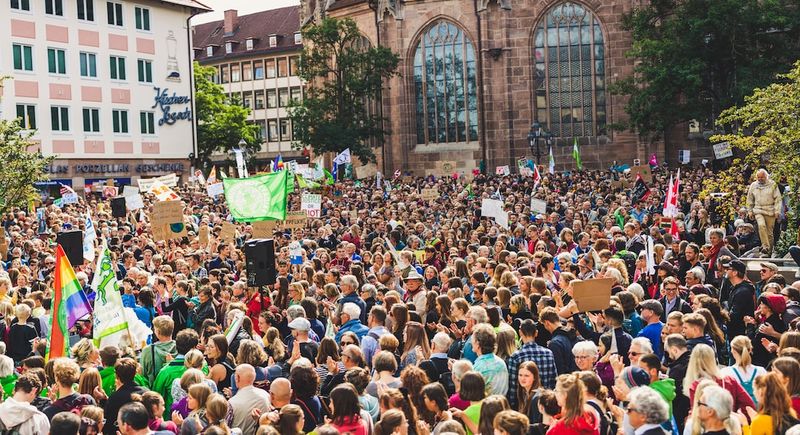Chicago Faces Alarming Air Quality Crisis
Chicago, a city known for its iconic skyline and vibrant culture, is currently grappling with a severe air quality crisis. According to the World Air Quality Index, Chicago currently has the worst air quality among the world’s big cities. This alarming revelation comes as wildfire smoke from Canada blankets the Midwest, exacerbating an already troubling situation.
Unhealthy Air Quality Levels
The air quality level in Chicago is classified as “unhealthy,” prompting the National Weather Service to advise people to limit outdoor activities. The city’s skyline, typically a stunning sight, is now veiled in smog, creating low visibility and further increasing health risks for its residents.
The city of Minneapolis ranks second on the World Air Quality Index, while Detroit comes in at the tenth spot — both cities experiencing unusually high levels of air pollution. These elevated levels of pollution highlight the widespread impacts of the current wildfire season, not only in Canada but also in neighboring regions and cities.
The Impact of Wildfire Smoke
Canada has been facing its worst wildfire season in recent history, with over 7 million hectares of land already burned. The smoke from these fires is drifting southward, enveloping cities in its path and causing severe air pollution. Cities like Chicago, New York City, Washington DC, and Montreal have all been affected, impacting the health and well-being of over 20 million people.
Mayor Johnson’s Call for Action
Chicago Mayor Brandon Johnson has expressed deep concern over the current air quality crisis and emphasized the urgent need for action. In a written statement, he acknowledged the harmful impact of the climate crisis on residents not only in Chicago but around the world. He called for drastic measures to mitigate the threats posed by climate change and emphasized the importance of protecting vulnerable individuals and communities.
The Chicago Cubs’ Response
While the situation demands attention and swift action, the Chicago Cubs have decided to proceed with their scheduled game against the Philadelphia Phillies at Wrigley Field, despite the high levels of air pollution. This decision raises questions about the priorities and interests at play, as well as the responsibility of sports organizations to prioritize the health and well-being of their fans and athletes.
Addressing the Air Quality Crisis
The alarming state of air quality in Chicago calls for immediate action and a comprehensive approach to address the crisis. It highlights the urgent need for cities, governments, and individuals to prioritize environmental sustainability and public health.
Rethinking Urban Planning and Transportation
One crucial aspect that needs to be addressed is urban planning and transportation. Chicago, like many other cities, relies heavily on transportation systems that contribute to air pollution and greenhouse gas emissions. Investing in sustainable and efficient public transportation, promoting walking and cycling, and encouraging carpooling can all help mitigate air pollution and improve air quality.
Regulations and Industry Accountability
The air quality crisis underscores the importance of enforcing stringent regulations on industries known to contribute to air pollution. The city needs to hold accountable those businesses that emit significant amounts of pollutants and encourage the adoption of clean technologies and practices. Collaboration between the government, industry, and environmental organizations is crucial in finding sustainable solutions.
Community Engagement and Advocacy
Community engagement and advocacy play a pivotal role in addressing the air quality crisis. It is essential for residents to be aware of the risks and take necessary precautions to protect themselves and their families. Grassroots organizations and advocacy groups can mobilize communities to push for stronger environmental regulations and policies that prioritize clean air.
Conclusion
The current air quality crisis in Chicago serves as a stark reminder of the urgent need to address climate change and its impact on public health. It highlights the interconnectedness of cities and regions, where actions and decisions made in one place can have far-reaching consequences. By prioritizing sustainability, advocating for stricter regulations, and engaging communities, we can work towards alleviating the immediate crisis and building a healthier, more resilient future.

<< photo by Benjamin Suter >>
The image is for illustrative purposes only and does not depict the actual situation.
You might want to read !
- Is Chicago’s Air Quality the Worst in the World?
- Air Quality Alert Day: The Impact of Canadian Wildfire Smoke on Outdoor and Indoor Environments
- Air Quality Alert: City Response and Implications for Public Health
- The State of LGBTQ Rights: Concerns Loom at NYC’s Pride March
- Philadelphia’s Air Quality Crisis: Understanding the Root Causes and Seeking Solutions
- Montana’s “Unofficial Ambassador” Criticizes State’s Reckless COVID Response
- Analyzing the Impact: Unveiling the Prize Money Breakdown at the Travelers Championship 2023
- Jon Hamm and Anna Osceola: A Hollywood Love Story Defying the Odds
- The Drowning of New York City: Understanding the Grim Consequences of Sinking Buildings and Rising Seas
- The Buggy Ride: Exploring the Resurgence of Horse-Drawn Carriages on the Roads
- The Future of Student Loan Forgiveness: Examining the Implications of the Supreme Court Ruling
- The Weight of Celebrity: Insights from Tom Hanks’ Niece and Her Emotional Journey
- The Glitz and Glamour of the 2023 NHL Awards: A Star-Studded Affair
- The Evolution of Ariana Grande: Celebrating Her Greatest Collaborations
- Russian Revolt: The LGBTQ+ Pride Movement Challenges Conventional Norms
- The Duchess’ Fight Against Breast Cancer: Sarah Ferguson on the Road to Recovery
- BET Awards Brawl: Lil Uzi Vert and JT Clash Ignites Controversy
- Exploring the Implications of the Official Arrival of El Niño in the U.S.
- How Climate Change Is Fueling Catastrophic Wildfires in Canada and Impacting Air Quality
- Supreme Court Decision on Student Loan Debt Relief: Shaping the Future of Borrowers




